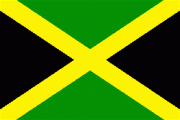KINGSTON, March 20 (JIS): BY: CHRIS PATTERSON
The forensic capabilities of the security forces have been boosted, following the acquisition of a BULLETRAX-3D System by the Institute of Forensic Science and Legal Medicine.
This system will capture digital images on the surface of bullets, match them with existing images in the police database, suggest potential matches with other bullets and strengthen the Institute’s capacity to collect information from ammunition.
The equipment will also boost the speed with which ballistic information can be provided to investigating officers and prosecutors when preparing criminal cases.
The system has been donated by the United Nations Regional Centre for Peace, Disarmament and Development in Latin America and the Caribbean (UNLIREC).
Speaking at the official handover ceremony recently, Minister of National Security, Hon. Robert Montague, said the provision of the BULLETRAX-3D System is part of a two-year technical-assistance package with UNLIREC.
“This package also includes expert support for the development of written standard operating procedures, training for firearm examiners, competency testing for firearm examiners, and the provision of equipment to support investigations involving the use of firearms,” he said.
The Minister pointed out that the Government is restructuring and expanding the Institute, so that it will be in a better position to solve crime using technology.
“We are in the technology age, and Jamaica is committed to the strategic use of science and technology in this fight to create a safer and more prosperous Jamaica,” he said.
Mr. Montague said the Institute now boasts some of the most advanced ballistic equipment in the Caribbean, adding that its Integrated Ballistic Information and Identification System is already having a positive impact on the investigation and handling of gun crimes in Jamaica.
Meanwhile, Executive Director, Institute of Forensic Science and Legal Medicine, Dr. Judith Mowatt, said the system will ensure that ballistic evidence is obtained in an automated, accurate and timely manner.
“Every gun has a story to tell, and a significant part of that story lies inside of the gun in the form of unique markings that can be transferred to bullet and cartridge cases. With so much at stake, effective solutions are needed to exploit this key information from each crime gun,” she emphasised.
Canadian High Commissioner to Jamaica, His Excellency Sylvain Fabi, said the equipment will enable law-enforcement officers to follow the guns and those who use them.
“Canada contributed over CDN$1.5 million to the UNLIREC-led effort to strengthen national and regional capabilities to combat firearms trafficking in Jamaica, Barbados, Belize, and Trinidad and Tobago,” he noted.
He said the Government of Canada is committed to assisting its partners in the Americas and the Caribbean to provide their own security through the strengthening of institutions. “We’re keen to see an improvement in citizen security in Jamaica, and we have put our support in both funding and technical assistance,” he said.
Mr. Fabi said it is hoped that the new equipment will contribute to the efforts to reduce crime, and reinforces Canada’s commitment to improve citizen security and the rule of law while fighting against transnational criminal organisations and corruption.
For her part, Deputy Director of UNLIREC, Amanda Cowl, said the system is a critical tool in combating small-arms trafficking in Jamaica and the Caribbean.
UNLIREC was created to support 33 Latin American and Caribbean States in their implementation of peace and disarmament measures and promotion of economic and social development.
It is the only UN regional entity specialising in disarmament and non-proliferation in the Latin American and Caribbean region. Its main function is to translate the decisions, instruments and commitments of Member States in the field of disarmament and non-proliferation into action at national, subregional and regional levels.


